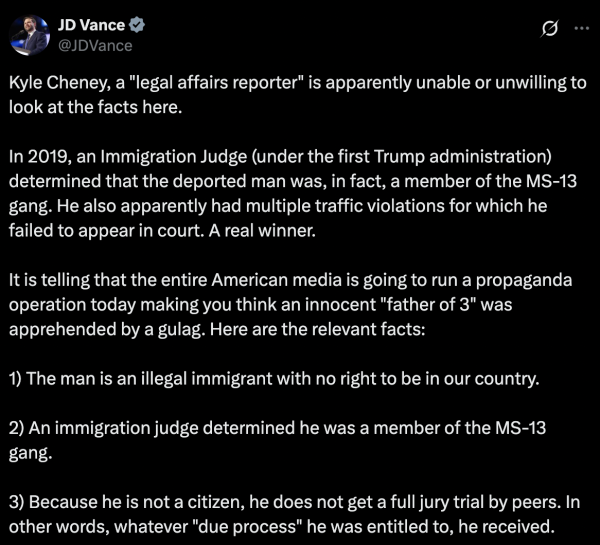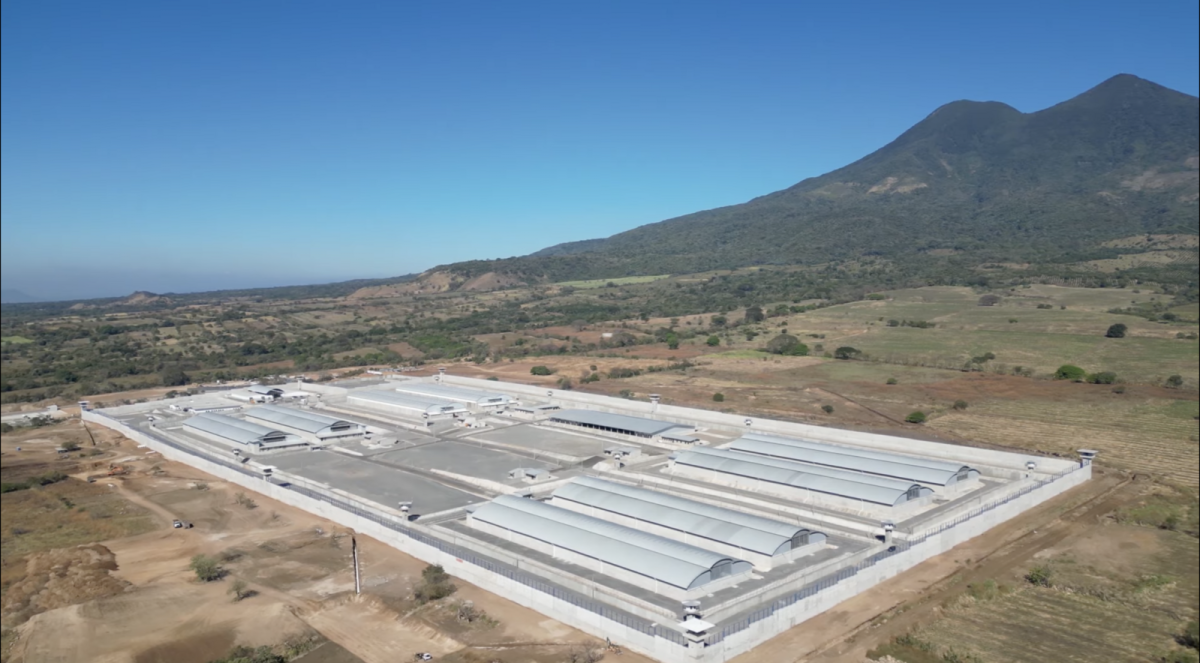Kilmar Abrego Garcia, a sheet metal worker and father of three from Maryland, was arrested and deported to a concentration camp in El Salvador. Abrego Garcia had no criminal convictions or charges and was a legal resident of the United States. The Trump administration admitted this arrest to be a mistake (specifying the arrest “because of an administrative error”). Courts ordered Abrego Garcia to be sent home, but the Trump administration protested, arguing that they were unable to bring him back since he is already outside of the country and therefore out of their jurisdiction. Some have even defended his unlawful arrest, including Vice President JD Vance, who tweeted multiple false statements about Abrego Garcia:
For starters, Abrego Garcia is not an illegal immigrant. He has protected legal status, and was granted withholding of removal to El Salvador, meaning he was permitted to live on US soil. Secondly, an immigration judge did not determine him to be a member of the MS-13 gang. What Vance is referring to is a confidential informant “[having] advised that Abrego Garcia was an active member“, which is not a legally-binding verdict of anything. The hundred-year-old Supreme Court Case Coffin v. United States established a presumption of innocence for those accused of a crime. Thus, Abrego Garcia must be treated as innocent until proven guilty.
Vance’s third point, however, is perhaps the most dangerous. Due process is one of the most fundamental aspects of liberal democracy and the rule of law. In short, it refers to the rules and procedures that need to be met in order for one to be punished by the state. In the United States, anyone accused of a crime is entitled to a proper trial before being convicted or sentenced. This is directly promised by the United States Constitution’s 5th and 14th Amendment:
“No person shall … be deprived of life, liberty, or property, without due process of law” (5th amendment)
“… nor shall any State deprive any person of life, liberty, or property, without due process of law.” (14th amendment)
Neither clause specifies citizenship as a prerequisite for due process, and the overwhelming legal consensus is that non-citizens are entitled to due process and trial by jury.

In the eyes of decades of legal precedent and still-withstanding court orders, Abrego Garcia is entitled to due process and it is a violation of his constitutionally-protected rights to deport him and send him to prison–just as much as it would be for anyone else on U.S. soil. The Trump administration learned that there are no consequences for sending an innocent man to a foreign concentration camp, since court orders are only able to be made after it is arguably too late to correct. If it is truly impossible to return Abrego Garcia home, then there is no way to correct any illegal deportations in the future.
If the government is able to deport Abrego Garcia and irreversibly send him to prison, they can do it to anyone. It is naive to suggest that immigrants are the only group of people that will be kidnapped and imprisoned, because the arrest of Abrego Garcia dismantles the principles of liberal democracy that protect everyone else. Without due process, no one is safe.






!["This is [Not] Who We Are" movie poster.](https://chswarriorscroll.com/wp-content/uploads/2025/04/Screenshot-2025-04-13-at-9.34.19 PM-1200x678.png)




